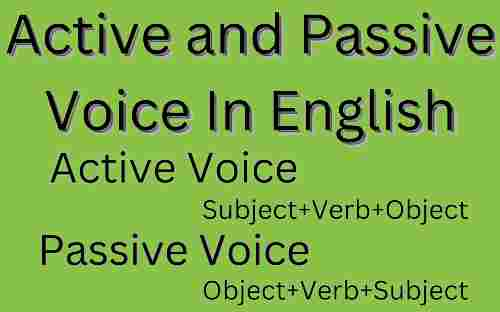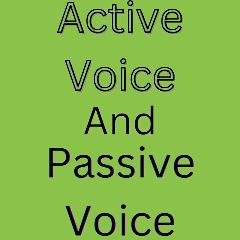Active Voice The sentence’s subject acts on the action’s target. In passive Voice, the target of the action is the main focus, and the verb acts upon the subject.
Active voice describes a sentence where the subject is the doer of the action. The passive voice indicates that the subject in the sentence is no longer. One thing to note here is that no matter the sentence’s structure, the meaning of the sentence does not change. That’s an essential point to remember throughout this chapter. Keep it in mind. Let’s dive straight into the realm of Active and Passive.
What is Voice of Verb?
The voice of a verb is the verb that expresses whether the subject in the sentence has acted.
Level: beginner
Read More Article: State Verbs And Action Verbs/Dynamic Verbs

Present Simple:
Verb 1st Form
Active
- I do my schoolwork.
Passive
- My schoolwork is done.
Past Simple:
Verb 2nd Form
Active
- I did my schoolwork.
Passive
- My schoolwork was done.
Future Simple:
Verb 1st From
Active
- I will do my schoolwork.
Passive
- My schoolwork will be done.
Present Continuous:
Verb Ing Form
Active
- I am doing my schoolwork.
Passive
- My schoolwork is being done.
Past Continuous:
Was & Were Ing Form
Active
- I was doing my schoolwork.
Passive
- My schoolwork was being done.
Future Be Going To:
Be Ing Form
Active
- I am going to do my schoolwork.
Passive
- My schoolwork is going to be done.
Present Perfect:
Have & Has 3rd Form
Active
- I have done my schoolwork.
Passive
- My schoolwork has been done.
Past Perfect:
Had 3rd Form
Active
- I had done my schoolwork.
Passive
- My schoolwork had been done.
Infinitive:
We can use,
Active
- I have to do my homework.
Passive
- My homework has to be done.
Models:
We can use,
Active
- I must do my schoolwork.
Passive
- My homework must be done.




